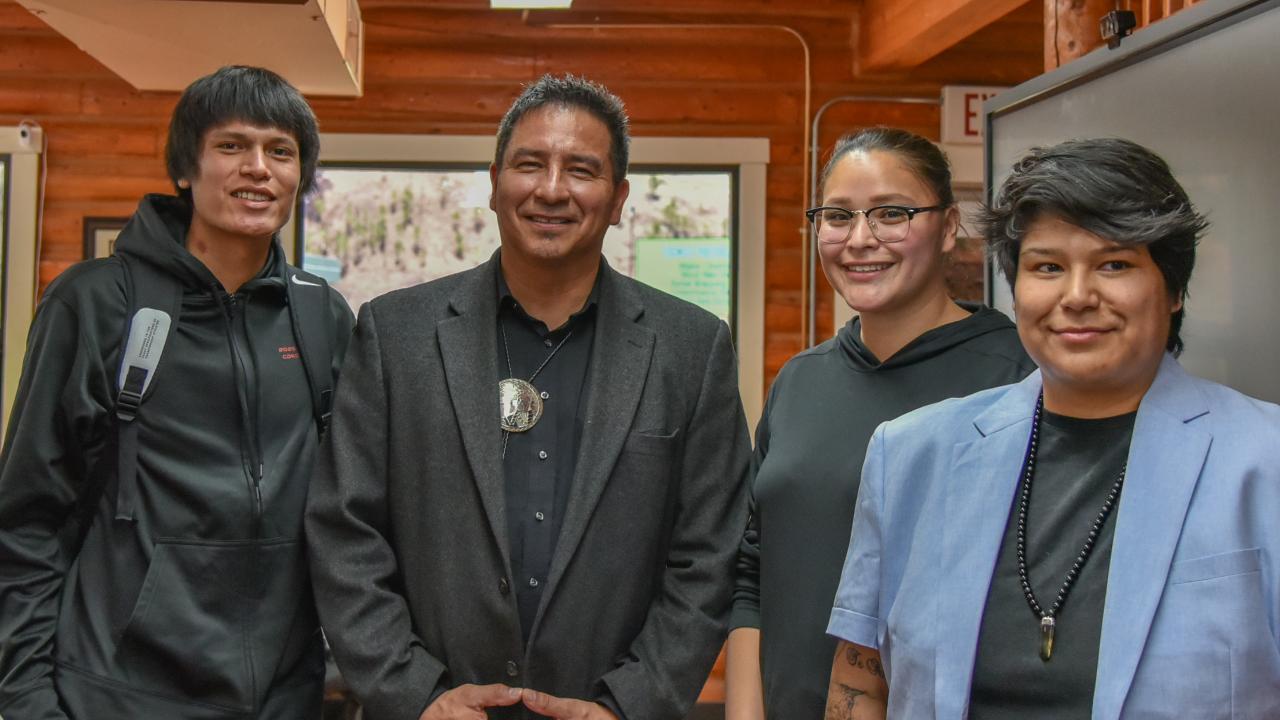Announcement
Scott Davis, senior advisor to the Secretary of the Interior, and other leaders from Indian Affairs wrapped up a multi-day visit to Montana where they engaged with tribal leaders on administration priorities. Davis, an enrolled member of the Standing Rock Sioux Tribe and a descendant of the Turtle Mountain Band of Chippewa, is exercising the delegated authority of the assistant secretary for Indian Affairs.
Davis spoke at the Rocky Mountain Tribal Leaders Council, where he met with leaders of tribes in Montana, Wyoming and Idaho and shared the administration’s vision for a relationship between the federal government and tribal nations that prioritizes efficiency, accountability, and results over bureaucracy. Davis also met individually with tribal leaders to discuss important issues such as gas and oil development, economic development opportunities and furthering self-governance. Additional discussions included further support of law enforcement efforts and resources as well as the need for expanding tribal education programs.
Davis and Richard “Glen” Melville, an enrolled member of Makah Tribe of Washington who leads the BIA Office of Justice Services, then met with U.S. Attorney for the District of Montana Kurt Alme to discuss law enforcement issues for Montana Tribes. Davis and Melville discussed the importance of federal collaboration in addressing the Missing and Murdered Indigenous People crisis. Alme discussed his work during the first Trump administration on the DOJ MMIP Task Force with Operation Lady Justice and his intent to work with BIA to address the issue. Alme also shared that his office would be looking at all illegal drug cases that come to the United States Attorney’s Offices in Montana, regardless of the quantity of drugs involved.
Davis and Melville also visited the Hardin Detention Facility to discuss the current and future needs of facility, and to meet and thank the staff for their contributions to public safety in Indian Country.
Davis and Bureau of Indian Education Director Tony Dearman, a citizen of the Cherokee Nation, toured Chief Dull Knife College, a tribal college on the Northern Cheyenne Indian Reservation in Lame Deer, and Little Big Horn College, a tribal college on the Crow Indian Reservation in Crow Agency. The Bureau of Indian Education provides grants to 29 tribal colleges and universities, which are among the most affordable higher education options in the United States. Compared to national averages for public, four-year universities, BIE institutions and tribal colleges and universities offer significant savings, with some costing less than $1,000 a semester. Many students graduate with little to no debt.
Leadership from both Chief Dull Knife College and Little Big Horn College emphasized their role in training students for high-demand careers that support local workforce needs. Programs in nursing, agriculture, information systems, public safety, and addiction studies prepare graduates to serve their own communities. This focus aligns with Secretary of the Interior Doug Burgum’s Order 3419 by advancing economic resilience, reducing service gaps, and lowering long-term costs through locally driven workforce development. These efforts help strengthen tribal and rural economies while promoting self-sufficiency.
They also visited Northern Cheyenne Tribal School, a tribally controlled K-12 school located in Busby, Montana, where they toured classrooms and engaged directly with students and educators. School leaders shared updates on academic programs, community partnerships, and efforts to support student success. The visit highlighted the importance of locally driven education, and the critical role tribal schools play in preparing the next generation of leaders.
Image

Contact Us
Washington, DC 20240
Open 8:30 a.m.–4:30 p.m., Monday–Friday.
newsmedia@bia.gov


